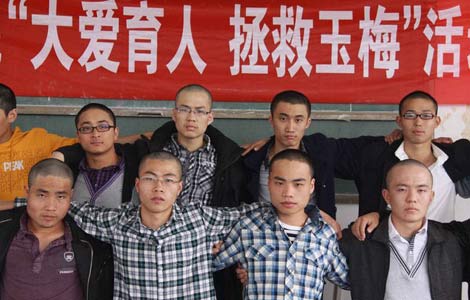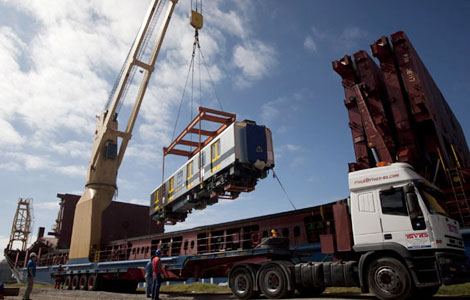 |
|
|
|
|||||||||||
Two school principals were dismissed from their posts after more than 300 students suffered from food poisoning in Dingla primary school, Southwest China's Yunnan province.
On Monday, 368 students at Dingla primary school showed symptoms such as diarrhea, stomachache and fever, after eating school-provided lunches. All were sent to hospital. The school supplies lunches for 1,061 students.
The school immediately reported the situation to the Zhenxiong county government, which investigated the incident.
By 5 pm on Thursday, 342 of the students were discharged from the hospital while 26 remained for observation.
On Friday morning, the county government disclosed its findings on its website.
Although investigators did not find excess bacteria in the samples they took from the school lunches, the canteen was found to be in violation of many regulations, including operating without a proper license and having insufficient equipment and poor management.
The county government said in a statement that two principals were removed from their positions.
Zhang Zhengfu, the principal of the Xinhai school in Zhaotong, Yunnan province, watches his school canteen closely.
Zhang has a notebook that records every purchase made by the school, from pepper to meat and rice.
Since the school is located in a remote mountainous area about two-hours drive from the closest market, Zhang personally drives to town to buy food once a week.
"We usually buy some food that stores well. For perishable food, we usually cook it as soon as possible," Zhang said.
Ding Yadong, a public relations officer from the China Foundation for Poverty Alleviation, said poor canteen management has plagued schools for a long time.
"Equipping a kitchen will not cost much money, but most rural schools do not have enough money or labor to maintain their canteens properly. And in some remote areas, it is not possible for local health authorities to check sanitary conditions very often," Ding said.
Some schools do not have money to hire a cook, so the teachers and school staff members must often prepare meals when they have time, he added.
Also, many remote schools operate without certification from local health authorities, Ding said.

|

|

|

|

|

|